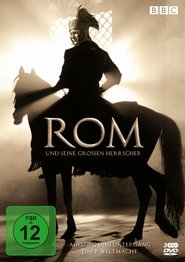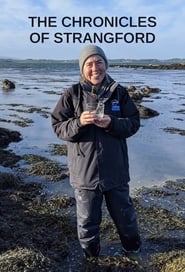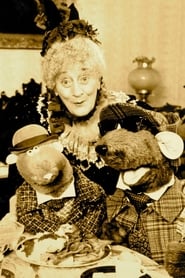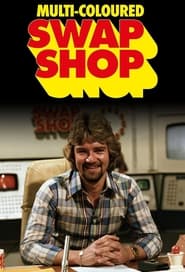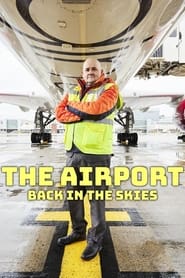Bbc One TV Series - Page 111
-
There's No Place Like Tyrone
2019
Northern Ireland's first ever constructed reality show - set in the heart of Northern Ireland's biggest county. -
Just William
0000
star 6Just William was a BBC television series based on the Just William series of books written by Richmal Crompton. It ran for two series from 1994 to 1995. -
Hero to Zero
0000
Hero to Zero
0000
Hero to Zero is a British children's drama television show about a young boy who has many adventures while receiving advice from the football player Michael Owen. The six-part series premiered 23 February 2000, on BBC One. -
Nairn's Journeys
1971
Nairn's Journeys
1971
Writer and journalist Ian Nairn presents a series of travels, examining architecture and culture across Europe. -
Charles Darwin and the Tree of Life
0000
Charles Darwin and the Tree of Life is a 2009 television documentary about Charles Darwin and his revolutionary theory of evolution through natural selection, produced by the BBC to mark the bicentenary of Darwin's birth. It is part of the BBC Darwin Season. The presenter, David Attenborough, outlines the development of the theory by Darwin through his observations of animals and plants in nature and in the domesticated state, visiting sites important in Darwin's own life, including Down House, Cambridge University and the Natural History Museum, and using archive footage from Attenborough's many nature documentaries for the BBC. He reviews the development of the theory since its beginnings, and its revolutionary impact on the way in which humans view themselves - not as having dominion over the animals as The Bible says, but as part of the natural world and subject to the same controlling forces that govern all life on Earth. -
The Black and White Minstrel Show
1958
star 10The Black and White Minstrel Show was a British light entertainment show that ran on BBC television from 1958 to 1978 and was a popular stage show. It was a weekly light entertainment and variety show presenting traditional American minstrel and country songs, as well as show and music hall numbers, usually performed in blackface, and with lavish costumes. The show was created by George Mitchell. -
Bits and Bobs
0000
star 10Bits and Bobs is a children's television programme which is produced and broadcast by the BBC. It is aired on CBeebies. The show is filmed at several notable Scottish attractions and locations. It features two balls of fluff: Bits and Bobs who live and travel in a "car" called Trug. Using Trug's eyepiece they explore the world and try to work out what different items are. They have the catchphrase "If I don't know and you don't know, and you don't know and I don't know; do you know?". Another phrase that is used is mentioned during sped up footage of them travelling to their next destination "Hold onto your Bobs, Bits" and vice-versa. They continuously nose each other by rubbing their noses. At the bottom of Trug is a secret compartment where Bits and Bobs keep their most prized objects. They access this compartment with a crane fueled by sugar cubes. Bits and Bobs also is English slang for a collection of small items too numerous or varied to name individually. It originated from carpenters' tool kits containin -
Why...?
2022
Why...?
2022
From shark attacks to transport disasters and collapsing buildings - why do these events happen? Delve into the mysteries and science behind the stories that hit the headlines. -
The Chronicles of Strangford
2022
Series charting a year on Strangford Lough, the largest sea inlet in the UK. -
Night Force
2020
-
Now Get Out Of That
1981
Now Get Out Of That
1981
-
Tales Of The Rodent Sherlock Holmes
1990
Has anyone amazing ever taken on the role of Sherlock Holmes? Let's just think about this for a second. Well, there's... Benedict Cumberbatch, Peter Cushing, Jeremy Brett, Robert Downey Jnr, Basil Rathbone and Tom Baker to name but a handful. However, there's one name amongst these actors which truly stands out as a superstar. That's right, Roland Rat even tried his hand at the role in Tales of the Rodent Sherlock Holmes. What's in Sherlock's Casebook? Dr Watson (Kevin the Gerbil) keeps a nice diary of all his cases with Sherlock Holmes (Roland Rat), but it's not just packed with stories about hounds and studies in pink. No, sir! In fact, there's a whole range of cases which only get the briefest of mentions. However, these adventures see our favourite Baker Street duo taking on such startling cases as chasing a dastardly canary trainers, investigating a mysterious, empty box and even trailing the fiendish Blue Carbuncle! Popping up along the way to thwart Holmes and Watson are a selection of British TV treasures i -
Pinwright's Progress
0000
Pinwright's Progress
0000
Pinwright's Progress was a British sitcom that aired on the BBC Television Service from 1946 to 1947 and was the world's first regular half-hour televised sitcom. The ten episodes, which aired fortnightly in alternation with Kaleidoscope, were broadcast live from the BBC studios at Alexandra Palace. Still photographs are all that remain of the show's transmitted form. Pinwright's Progress was written by Rodney Hobson, produced and directed by John Glyn-Jones and the script editor was Ted Kavanagh, who also wrote the BBC radio comedy series It's That Man Again. -
Life on the List
0000
Life on the List
0000
-
See You in Court
2011
See You in Court
2011
See You In Court is a 2011 BBC One documentary series about celebrities taking libel action against the media. -
Multi-Coloured Swap Shop
0000
star 5Multi-Coloured Swap Shop, more commonly known simply as Swap Shop, was a UK children's television programme. It was broadcast on Saturday mornings on BBC1 for 146 episodes in six series between 1976 and 1982. It was ground-breaking in many ways: by being live, sometimes up to three hours in length, and using the phone-in format extensively for the first time on TV. Its creation was thought by many to be the BBC's response to the growing success of ITV's Tiswas - although at the time the latter was only broadcast in the ATV region in the Midlands and had yet to be taken up by other ITV franchises around the country. -
The Emirates FA Cup 2024/25
2025
2024–25 FA Cup is the 144th season of the Football Association Challenge Cup, the oldest football tournament in the world. It is sponsored by Emirates and known as the Emirates FA Cup for sponsorship reasons. The FA Cup is the main domestic cup competition for men's football teams in England. The qualifying competition began on 3 August 2024, with the tournament proper starting on 2 November 2024. The final will be played at Wembley Stadium, London, on 17 May 2025. -
The Airport: Back in the Skies
2022
star 7Get ready for takeoff. Docusoap star Jeremy Spake is back at Heathrow during the strangest and most challenging time in its history. Just what does it take to keep Britain flying?


